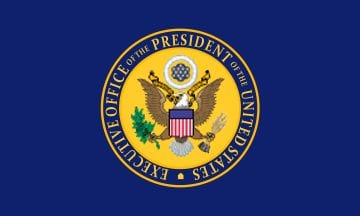
Our clients often ask us/they are confused whether the Presidential proclamations suspending entry to the U.S. to travelers coming to the U.S. from certain countries are still in effect.
The short answer is yes. As of August 31, 2020, if you have been present in the following countries within the 14 days prior to your entry or attempted entry to the U.S. in the following countries, you will be denied an entry:
- China;
- Iran;
- Schengen area countries (Austria, Belgium, Czech Republic, Denmark, Estonia, Finland, France, Germany, Greece, Hungary, Iceland, Italy, Latvia, Liechtenstein, Lithuania, Luxembourg, Malta, Netherlands, Norway, Poland, Portugal, Slovakia, Slovenia, Spain, Sweden, and Switzerland) ;
- the UK and Ireland; and
- Brazil
Please note that it does not matter whether or not you are a national of any of the countries listed above, and the only thing that is relevant to whether or not you will be denied entry to the U.S. is whether you have been physically present in any of the above countries. For example, if you are a national of the UK but you are living in Mexico and you have only been present in Mexico in the past 14 days, you can still come to the U.S.
When will the travel restrictions be lifted?
Unfortunately, the President has not yet announced any details on when the travel restrictions could potentially be lifted.
Are there any exceptions?
Yes, each proclamation lists certain exceptions. For example, the proclamation restricting travel from the Schengen countries indicates that the proclamation does not apply to:
- A green card holder;
- Spouse of a green card holder;
- Parent or legal guardian of a U.S. citizen or green card holder, provided that the U.S. citizen or lawful permanent resident is unmarried and under the age of 21;
- sibling of a U.S. citizen or lawful permanent resident, provided that both are unmarried and under the age of 21;
- if your entry would be in the U.S. national interest, as determined by the CBP
Please note that these are only some exceptions and you should check the language of the relevant proclamation and/or contact an Immigration attorney to see if you fall under any exception.
What is a National Interest Exception?
Certain business and student travelers coming from Schengen countries or the UK and Ireland can apply for a National Interest Exception. Please see more about the National Interest Exception and which categories of travelers qualify when you click here.
I am not from a Schengen Area country or the UK and Ireland. Can I still apply for a National Interest Exception?
You cannot apply for the “National Interest Exception” but the Presidential proclamation restricting travel from Brazil, Iran and China all list the following exemption:
The Presidential proclamation does not apply to “any alien whose entry would be in the national interest, as determined by the Secretary of State, the Secretary of Homeland Security, or their designees.”
You should check the website of the Consulate where you are currently located to find out information on how to submit application for the National Interest exemption.
For example, if you are currently in Brazil and you would like to come to the U.S., the U.S. Consulate in Brazil indicates that if you would like to qualify for the national interest exemption, you should contact your nearest Consulate (and they will likely provide you more information).
Additionally, the U.S. Consulate in Brazil indicates that the national interest exemption is very limited and only applies to applicants performing “work essential to combating, recovering from, or otherwise alleviating the effects of the COVID-19 outbreak or for which law enforcement or national security interests apply”, so the exemption is defined very narrowly.
What options do I have if I need to come to the U.S.?
If you do not qualify for any of the above exceptions, you can fly to a country that is not on a travel ban list, spend at least 14 days there and then seek an entry to the U.S.
The answer is yes but there are couple things you should keep in mind:
- You should check whether the country you want to fly into has any restrictions on incoming travelers and if so, you should make sure to comply with those requirements
- You should make sure that on the day when you arrive in the U.S., you have not been present in any country that is currently on the list of restricted countries in the past 14 days
- You should make sure that if you have a layover, the layover is not in a country that is on the list of restricted countries as you would be denied entry to the U.S. Please note that even if you do not leave the airport in the country that is on the list of restricted countries, you will still be denied entry to the U.S.
- You must have either a valid visa or ESTA when entering the U.S. If you need to apply for a visa, you should contact your local U.S. Consulate.
Please click here to find out whether you can travel to the U.S. from Europe.
Please click here to find out more information about the National Interest Exception for the Schengen countries and the UK and Ireland.
Great post